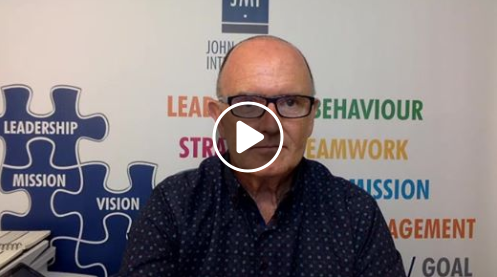I wanted to share with you some interesting research that Google did about what makes a really effective team?
What they found was not surprising to me, and really reinforces what I’ve been talking about for a long time about teams. Google’s research also confirms the data that we get from working with teams.
What are the challenges facing managers who are leading teams? First and foremost is psychological safety.
What they mean is that team members feel safe to take risks and be vulnerable in front of each other. Now, I obviously agree with that. I think underlying that is trust, which is something that I’ve spoken about a great length in previous blogs, podcasts, articles, and when I’m working with clients.
Trust is the basis of any team.
And trust that I can be open, that I can be challenging, that I can be challenged, and that we can hold each other accountable. I am quite happy to be held accountable, even if it’s uncomfortable.
That psychological safety is a big challenge for many managers to create. That atmosphere of psychological safety where people feel free to be open – that they can do or say things without fear of recrimination or somebody getting back at them at some later stage.
So it is incredibly important to have that as a key element in any team in order to be effective. They really must have that psychological safety.
Another key element, according to the research, is dependability – that I can depend on this team. I can depend upon you to deliver, and you can depend on me to deliver because while planning and strategizing is really important, we also need to be really good at the execution of projects and tasks.
And knowing that when I make a commitment to deliver on a certain date, it will happen. So execution is hugely important. And the fact that we can rely upon each other to do that.
But also referencing that psychological safety within the team, when the execution is not happening that I can reach out and hold other people accountable and they can do the same to me. That actually makes for a healthy team!
The other points mentioned are about structure and clarity, where they say, “team members have clear roles, plans, and goals.” I would agree with that. But I would add to that. When we’re talking about teams, we must make sure that we’ve got the right people, in the right roles, doing the right work, in the right way. And that’s so fundamentally important.
It’s easy to talk about having the right people, in the right roles, etc but if you know that any one of those elements is missing, then you really need to do something about it. Not doing something is a dereliction of duty.
They talk about other things like meaning and impact – the work has to have meaning and impact. I would fully agree with that.
But really, what I want to focus on today is:
Having that psychological safety. It is that high level of trust that exists within a team. We can be open, can be held accountable and can hold each other accountable. But also that we know that we can depend on each other to execute. The execution is so important and that we execute on time.
Because certainly, in my experience when working with teams is that when delays happen, that can become a habit. There should be certainty that when we say we will have something by a certain date, it will actually happen.
And again, the third element, which is about the right people in the right roles doing the right work in the right way. I think it’s so important to actually really challenge ourselves, as leaders, as managers of teams, if we have that.
If we don’t have some part of that right, then we must do something about it. Because if we don’t have the right people in the right roles, then the old Jim Collins line “We don’t have the right people on the bus, so we don’t have the right people for the journey” becomes a reality, and one we cannot ignore.
For new managers coming into the role for the first time to be become future leaders and build and really create highly effective teams – we’ve put together an online program recently, which you can see at www.first100daysplan.com.
If you want any more information on that, please get in touch with me. The program is totally focused on giving new managers a step by step process to make sure that they are becoming highly effective managers who lead highly effective teams.
Everything I’m talking about today, we talk about in the program, and an awful lot more!
So for new managers, I would say please go to www.first100daysplan.com.
Have a look there, or reach out to me through here or through john@johnmurphyinternational.com.
I’d be very happy to provide you with any more information. If you’re onboarding new managers, that may be something that would be well worth having a look at.
I was just delighted to see the research from Google because it does really reinforce the points that I’ve been making for quite some time, here and elsewhere about what does make up highly effective teams.
As a leader, the number one priority is to build a highly effective team. Because if you do that, at the end of the day, it’s all about achieving results to others, then you have really taken a very big step forward in terms of becoming the highly effective leader that you want to be.
So have a great day and I talk real soon.
